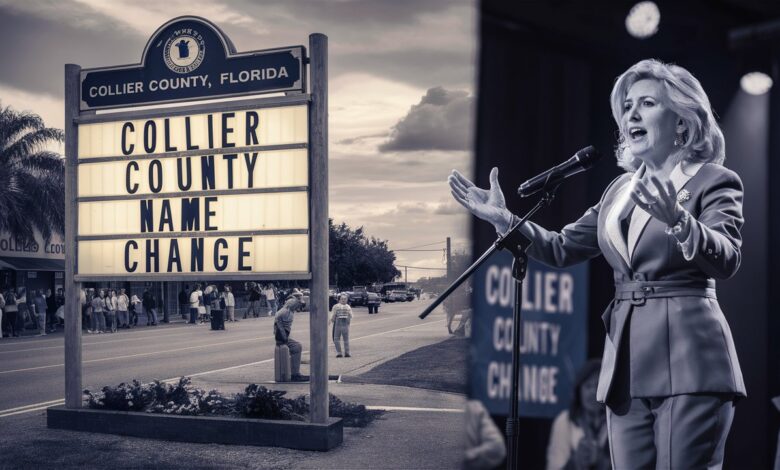Collier County Name Change Diane Liemandt Florida

The process of a name change can be a significant event in a person’s life, often driven by legal, personal, or professional reasons. In Florida, the legal name change process follows specific state and county regulations, ensuring proper documentation and adherence to legal requirements. One case that has garnered attention is Diane Liemandt’s name change in collier county name change diane liemandt florida. This article explores the process, requirements, and implications of a legal name change in Collier County while delving into the specifics of Diane Liemandt’s situation.
Understanding the Name Change Process in Collier County, Florida
collier county name change diane liemandt florida, located on the southwestern coast of Florida, adheres to the legal framework established by the state for processing name changes. The procedure typically involves filing a petition with the county court, providing necessary documentation, and appearing for a court hearing if required. The following are the essential steps involved:
1. Filing a Petition for Name Change
The first step in legally changing one’s name in Collier County is submitting a petition to the court. The petitioner must complete the official Florida Petition for Change of Name form and submit it to the Clerk of Court in Collier County. This document requires details such as current legal name, requested new name, reasons for the change, and any past legal issues or name changes.
2. Background Check and Documentation
Florida law mandates a background check to ensure that the name change request is not intended for fraudulent purposes, such as evading debts or criminal charges. The petitioner must submit fingerprints for a state and federal background check. Additionally, documentation such as a birth certificate, government-issued identification, and proof of residency may be required.
3. Court Hearing and Approval
In some cases, a court hearing is necessary, especially if the petitioner has a complex legal history. During the hearing, the judge reviews the petition and ensures that the name change is in compliance with state laws. If the judge approves the request, a final order granting the name change is issued.
4. Updating Legal Documents
After receiving court approval, the petitioner must update all official documents, including their Social Security card, driver’s license, passport, and financial records. This step ensures that the new name is recognized across all legal and official platforms.
Diane Liemandt’s Name Change in Collier County, Florida
Diane Liemandt’s name change in Collier County has been a topic of interest, with many people curious about the details and implications of her decision. While personal motivations for name changes can vary, they often stem from marital changes, professional rebranding, or personal identity preferences.
Diane Liemandt’s case follows the same legal framework as any other name change petition in Collier County. She would have needed to file a petition, undergo a background check, attend any necessary hearings, and complete the process of updating her legal documents. Whether her name change was due to personal, professional, or other reasons, the legal process ensures transparency and legitimacy.

Legal Considerations for Name Changes in Florida
Changing one’s name is a legally binding decision, and there are several important considerations to keep in mind:
- Fraud Prevention: Florida law prevents individuals from changing their names to evade legal responsibilities, debts, or criminal prosecution.
- Minor Name Changes: If a minor’s name is being changed, both parents or legal guardians must provide consent, or a court hearing is required.
- Marriage and Divorce Name Changes: Name changes due to marriage or divorce are generally simpler and do not require a separate petition.
- Public Records: Name changes become part of public record unless sealed by the court for specific legal reasons.
Frequently Asked Questions (FAQs)
1. How long does the name change process take in Collier County?
The process can take anywhere from a few weeks to several months, depending on factors such as background checks, court schedules, and documentation accuracy.
2. Do I need a lawyer to change my name in Florida?
While it is not required, hiring a lawyer can help streamline the process, especially in complex cases involving minors, past criminal history, or legal disputes.
3. How much does it cost to change my name in Collier County?
The filing fee for a name change petition in Florida typically ranges from $400 to $500. Additional costs may include fingerprinting fees and document update fees.
4. Can my name change request be denied?
Yes, a judge can deny a name change if there are concerns about fraud, criminal intent, or failure to meet legal requirements.
5. Is a name change public record in Florida?
Yes, name changes are generally part of public records unless sealed by the court for privacy or security reasons.
Conclusion
The legal name change process in collier county name change diane liemandt florida is a structured procedure that ensures individuals can change their names while maintaining legal transparency. Diane Liemandt’s name change, like any other, required adherence to state and county regulations, including filing a petition, undergoing background checks, and obtaining court approval. Understanding the legal requirements and implications can help individuals navigate the process smoothly and ensure a successful name change. If you are considering a name change in Florida, consulting legal professionals or reviewing official county guidelines can provide further assistance.


